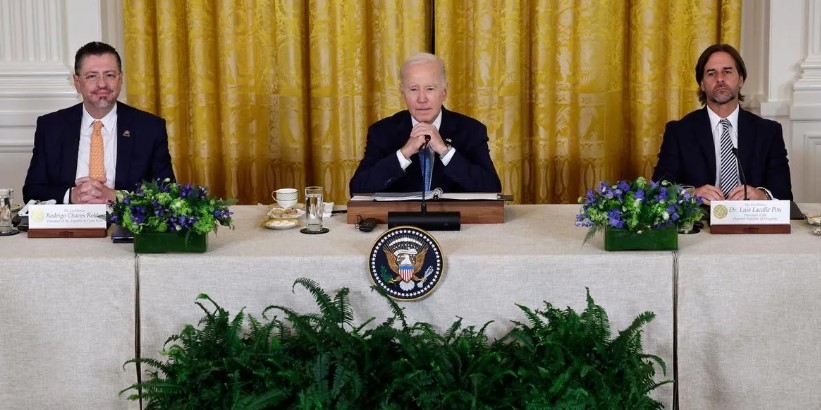In a recent news conference, President Biden revealed his active participation in ongoing hostage negotiations between Israel and Qatar, representing Hamas. Expressing a cautious optimism, Biden disclosed that he is “mildly hopeful” about the progress of these efforts. The negotiations come as Hamas tentatively agrees to a deal to release some hostages, prompting Israel to consider its response, as reported by The Washington Post, citing an Arab diplomat familiar with the talks.

Amidst these diplomatic maneuvers, Israeli forces reportedly remained inside al-Shifa Hospital following a raid, asserting the presence of military equipment and linking the site to a Hamas command center. However, The Washington Post could not independently verify these claims, raising questions about the credibility of the evidence provided by Israeli officials.
In a related development, an image geolocated by The Post depicted individuals, including someone in medical scrubs, digging trenches at al-Shifa Hospital—a visual reinforcement of reports about makeshift graves for dying patients. Satellite imagery from Planet Labs revealed changes in the hospital’s surroundings, suggesting movement of tents and the creation of a trench, supporting the claims made in the photograph. The urgency to address the increasing number of bodies, estimated to be at least 100, prompted the preparation of a mass grave for 180 individuals, according to Gaza Health Ministry director Medhat Abbas.
The dire situation in Gaza prompted the United Nations Security Council to pass a resolution demanding “immediate extended humanitarian pauses” in the conflict, unhindered humanitarian assistance, and the unconditional release of hostages. Notably, this resolution succeeded after four previous attempts were vetoed by either the United States or Russia, both of whom abstained during the latest vote.
Adding to the crisis, Gaza’s main telephone and internet providers, Paltel and Jawwal, anticipate a complete communications blackout due to fuel depletion. This development further complicates the humanitarian situation in the region.
The toll of the conflict has been devastating, with over 11,100 Palestinians reported killed in Gaza since the war began. The Gaza Health Ministry, facing communication blackouts and fighting around hospitals, acknowledged difficulty in keeping an accurate count, indicating that the actual number could be higher than the last official figure. In Israel, at least 1,200 people have been killed, and approximately 240 were taken hostage during Hamas’s attack on October 7.
President Biden, addressing the ongoing conflict, expressed his belief that a resolution is unlikely until a two-state solution is reached. The complexity of the situation, with its geopolitical ramifications and humanitarian implications, underscores the challenges in finding a lasting and equitable resolution to the longstanding Israel-Palestine conflict.
